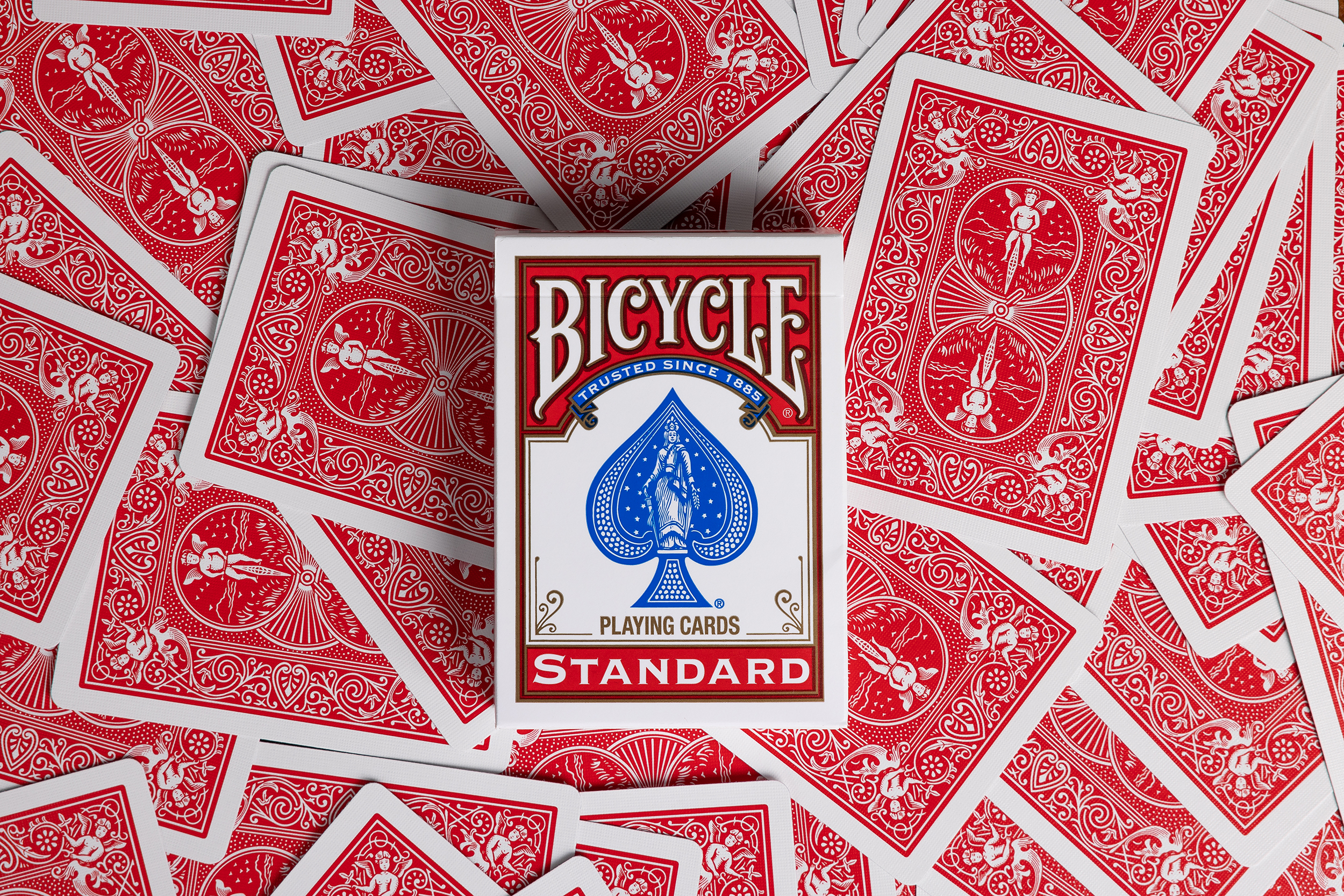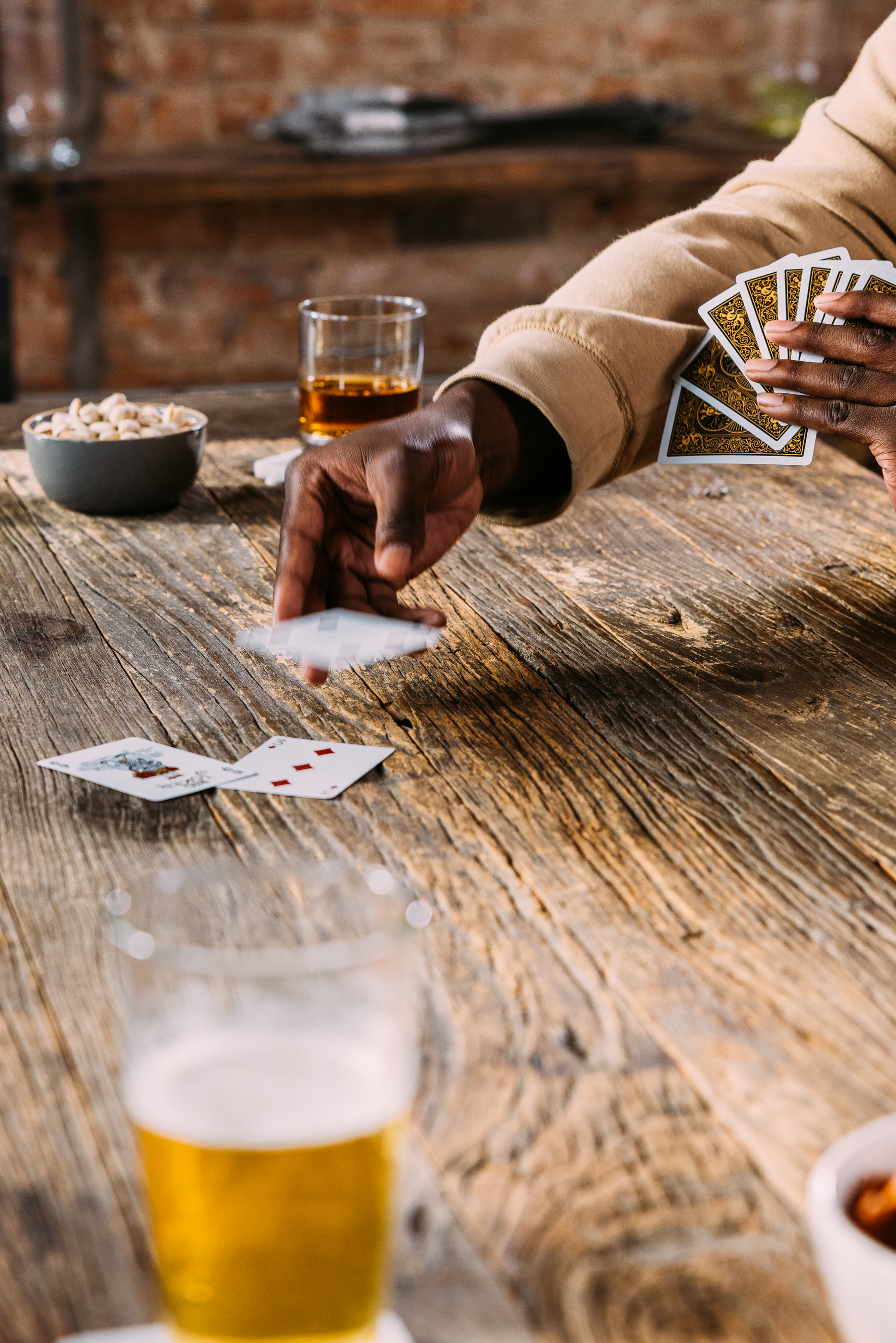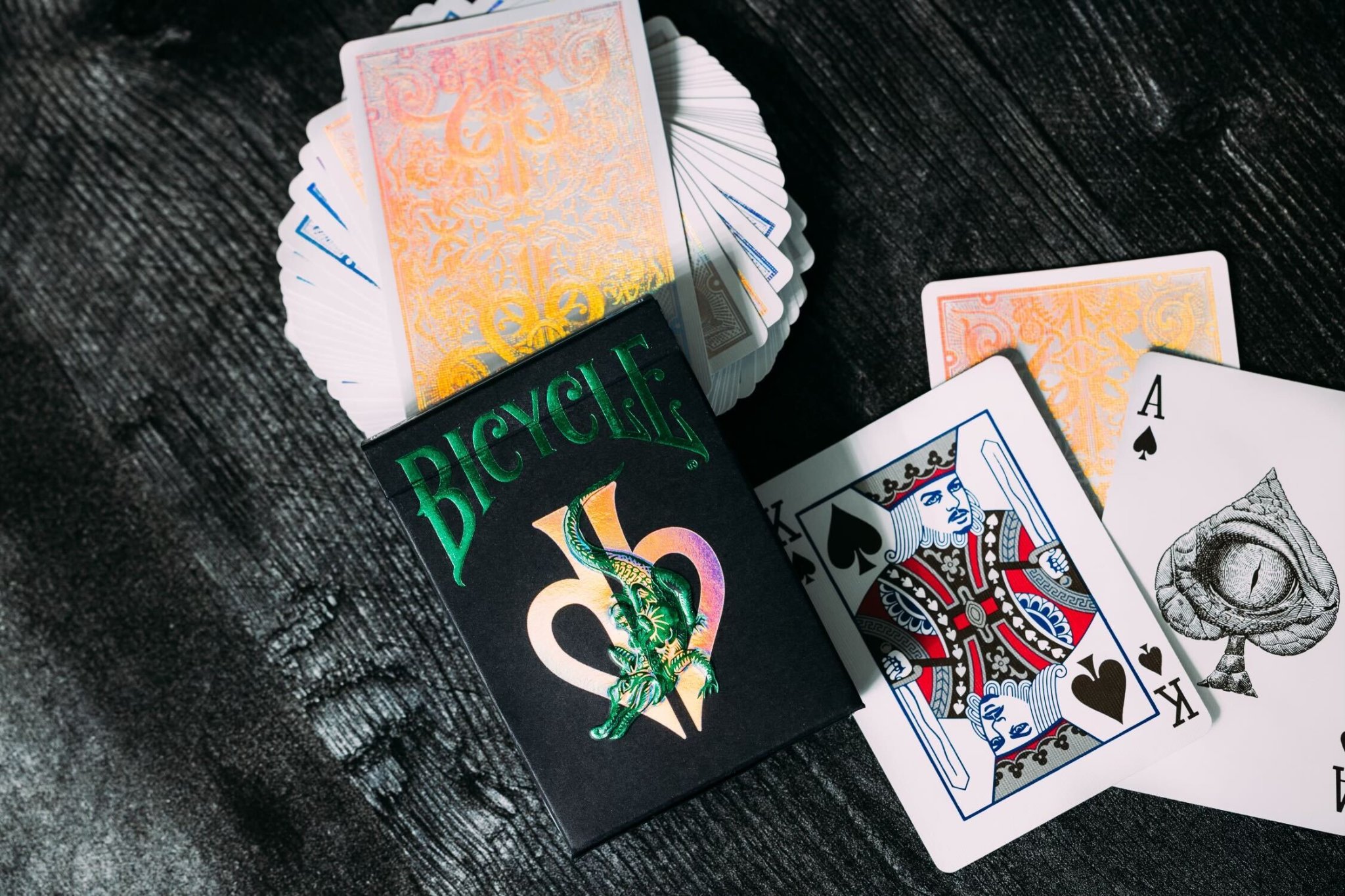

Story
Bicycle - Trusted Since 1885 and The Impact It’s Had On Playing Cards
It’s easy to miss just how integrated the traditional 52-and-two-joker deck of cards is within our culture.
There are many everyday phrases that are direct references to playing cards. For example, if someone is sharp, they’re “playing with a full deck.” If someone has a surprise solution, they’ve “got an ace up their sleeve.” If someone makes good decisions, they’re “playing their cards right.” Music is loaded with card references. One of Lady Gaga’s biggest hits is “Poker Face” and possibly the most famous metal song of all time is “Ace of Spades.” The only musician to have ever won the Nobel Prize in Literature, Bob Dylan, has a celebrated folk ballad about “Lily, Rosemary and the Jack of Hearts.” And those are just three songs by prominent artists.
This cultural integration of cards within society came about slowly. We at Bicycle are proud to be a major driving force for this integration. As every pack of our cards states, we’ve been a trusted brand since 1885. For perspective, this makes Bicycle as old as the American Telephone & Telegraph Company (AT&T,) and our foundation coincides with the arrival of the Statue of Liberty in America.
“It’s amazing when you think about Bicycle and how long it has been in the hands of families around the world” said Craig Townsend, EVP North America.
Bicycle has continually been at the forefront of leisure since its foundation. We’ve always sought to create extremely high-quality products that were accessible to everyone. We’ve ensured almost everyone could play card games with others or on their own. Essentially, we were the game consoles of the late 19th century and early 20th century.
But another vital part of our impact has been where our playing cards have been- some of the most interesting places on earth and the universe. “Let me tell you a little bit about who’s had these cards in their hands: Presidents, generals, it’s even been with astronauts in space.” said Craig Townsend, EVP North America.
Beginning with America’s entry into World War One, Bicycle has also been a strong supporter of the armed services. In 1917, the company began printing its “war series,” which was made up of four decks, one each for the individual branches of the armed forces. The Army pack was named Big Gun; the Navy pack was named Dreadnaught; the Air Force pack was named Flying Ace; and the Marine Corps pack was named Conquerer. Today, these packs are some of the rarest bicycle products ever produced. Only six packs are known to currently exist.
When America entered World War Two, Bicycle was keen once more to support those serving overseas. This time, they would become a key tool in helping captured American soldiers escape.
To aid the war effort, the United States Playing Card Company, let the US and British governments know that they were keen to support the fight against fascism in any way possible. The American Office of Strategic Services and the British Special Operations Executive, the two top-secret government agencies tasked with espionage, got in touch with Bicycle.
These government agencies were desperately trying to covertly supply maps to allied prisoners of war. They needed a way to get these maps to soldiers in Red Cross packages without the enemy finding and destroying them. That was where Bicycle came in. If the maps were hidden within packs of ordinary-looking playing cards, then they would likely slip through unnoticed. Soon, Bicycle and the intelligence agencies devised an ingenious solution. As with all playing cards, the packs sent to POWs would comprise of two layers of paper glued together. Unlike most playing cards, the inside layer of each card would feature a portion of a map of the area surrounding their destination prison camp. AllPOWs had to do was immerse a card in water and peel away the layers to find the maps.
These maps offered invaluable assistance to any prisoner of war that was plotting an escape. By assembling the peeled cards into a map of the area, they could plot escape routes, identify areas of temporary concealment for rest and reach rapid means of evacuation to a neutral nation, such as train lines.
As the entire project was conducted with the highest secrecy, very little is known about the extent of the map card operation today. Only two original map decks have been confirmed to still exist. One of these is part of the Washington D.C. Spy Museum’s permanent display, the other is owned by a private collector.
Bicycle’s innovations have also been used to support scientific achievement. The best examples are our involvement with The Space Race and later human habitation of space.
In 1971, the same year Apollo 14 reached the Moon, NASA reached out to Bicycle. To tackle the long periods of downtime in space, their astronauts needed something fun to do, like playing cards. Providing a suitable pack of cards for astronauts was much harder than many would assume. Typical “Earth” playing cards were hazardous on space missions. These cards may seem harmless, but within the oxygen-rich environment of a spacecraft, they could easily catch alight and wreak havoc. Luckily, after significant work, Bicycle was able to produce a set of cards that was flameproof. These cards, which proudly incorporated the NASA logo into the design, then kept astronauts entertained on a number of missions. Most notably, they were in use on America’s first space station, Skylab, which orbited the Earth from 1973 to 1979. Over the course of this time, three different crews lived in Skylab, and all of them would have passed the long months orbiting the Earth by playing with Bicycle cards.
And not only was Bicycle the first card brand in space, but also still is. The International Space Station uses Bicycle cards, and they can often be spotted in footage from the space station. Astronaut Richard Garriott, used a deck of Bicycle cards in his gravitational demonstrations for the UK Space Agency.
Naturally, with so much experience creating cards for different environments, Bicycle has perfected the art of producing cards for day-to-day use. Nothing else feels quite like a Bicycle card, which has gone a long way toward making our products so popular in everyday life.
“What makes this card so unique is … the air cushion finish. This is so unique, and only Bicycle, right? It gives it that sleek finish but a little bit of texture, so when you slide it across the table, it’s super smooth.” said Craig Townsend, EVP North America.
Experience and experimentation have allowed Bicycle to craft the finest cards on the planet and in space. But it’s still experimenting in the present day. It’s constantly producing new packs, collaborating with other brands and utilizing new technology to enhance play. It’s also merging the physical world with the digital world with the Bicycle app and the recent launch of hybrid cards that are also NFTs. This NFT announcement also highlights one further essential aspect of the brand: Its commitment to being a force for good. With the NFT launch, Bicycle also announced that 10% of its NFT sales from this initial launch would go to a children’s educational nonprofit named Mobile School. This is fully in keeping with a brand that has always sought to have a positive impact, whether that’s fighting fascism or reducing pollution by making sustainable products.
“Long-lasting and sustainable, we take being a world citizen very seriously. These are 100% recyclable and made in America.” said Craig Townsend, EVP North America.
With a brand as vast as Bicycle, it’s easy to fill a whole book with its unique stories and interesting innovations.

